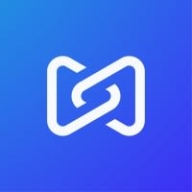

Klocwork and SonarQube Cloud compete in static code analysis tools. SonarQube Cloud has an edge due to its features and user satisfaction.
Features: Klocwork offers deep code analysis, strong integration for embedded systems, and on-the-fly analysis. SonarQube Cloud provides broad language support, automated code review, and advanced code quality metrics.
Room for Improvement: Klocwork could enhance cloud integration, documentation, and CI/CD pipeline support. SonarQube Cloud may improve in handling large-scale setups, reducing false positives, and documentation clarity.
Ease of Deployment and Customer Service: SonarQube Cloud has easy deployment with its cloud model and offers extensive online resources and community support. Klocwork requires local installation, providing dedicated support and comprehensive documentation.
Pricing and ROI: Klocwork may incur higher initial costs but can deliver robust ROI for large operations needing advanced security. SonarQube Cloud's pricing aligns with cloud usage offering quick ROI due to lower infrastructure and scalable solutions.


Klocwork detects security, safety, and reliability issues in real-time by using this static code analysis toolkit that works alongside developers, finding issues as early as possible, and integrates with teams, supporting continuous integration and actionable reporting.
SonarQube Cloud offers static code analysis and application security testing, seamlessly integrating into CI/CD pipelines. It's a vital tool for identifying vulnerabilities and ensuring code quality before deployment.
SonarQube Cloud is widely used for its ability to integrate with tools like GitHub, Jenkins, and Bitbucket, providing critical feedback at the pull request level. It's designed to help organizations maintain clean code by acting as a quality gate. This service supports development methodologies including sprints and Kanban for ongoing vulnerability management. While appreciated for its dashboard and integration capabilities, some users find initial setup challenging and note the need for enhanced documentation. The recent addition of mono reports and microservices support offers deeper insights into security and code quality, though container testing limitations and false positives are noted drawbacks. Manual intervention is sometimes required to address detailed reporting, with external tools being necessary for comprehensive analysis. Notifications for larger teams during serious issues and streamlined integration of new features are also areas of improvement.
What are the key features of SonarQube Cloud?In specific industries, SonarQube Cloud finds application in finance and healthcare where code integrity and security are paramount. It allows teams to identify critical vulnerabilities early and ensures that software development aligns with industry regulations and standards. By continuously analyzing code, it aids organizations in deploying secure and reliable applications, fostering trust and compliance.
We monitor all Static Application Security Testing (SAST) reviews to prevent fraudulent reviews and keep review quality high. We do not post reviews by company employees or direct competitors. We validate each review for authenticity via cross-reference with LinkedIn, and personal follow-up with the reviewer when necessary.